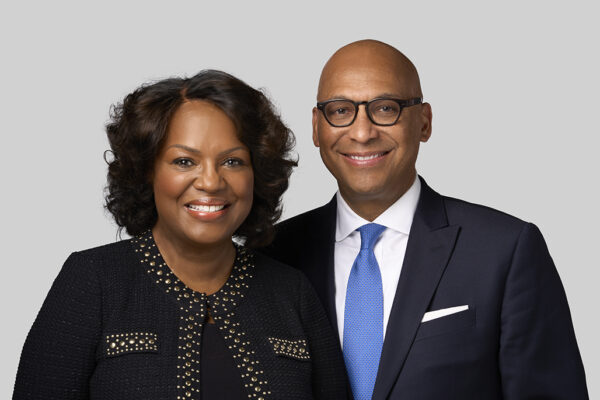Strengthening Your Union
Is Marriage Counseling for Newlyweds a Good Thing?
September 10, 2024 | Silver Spring, Maryland, United States | Willie and Elaine Oliver
Q. We’ve been married for 18 months and our relationship has mostly been good. Quite frequently, though, we get annoyed at each other and sometimes it takes us a good day or two before we’re back to relating to each other in a “normal” way. Is it too early in our marriage to get counseling or is this something that can wait until later?
A. Seeking marriage counseling early in your marriage is not only acceptable but can be highly beneficial if you’re facing challenges of any kind in your marriage.

Willie and Elaine Oliver, family ministries directors of the General Conference. [Photo: Adventist Review]
To be sure, the Bible encourages us to address conflicts and seek reconciliation promptly. In Ephesians 4:26-27 we read: “Be angry, and do not sin: do not let the sun go down on your anger, and give no opportunity to the devil.” This proposes that we should not let issues fester but deal with them quickly and constructively.
Jesus Himself emphasized the importance of reconciliation in Matthew 5:23-24, urging believers to reconcile with others before presenting offerings to God. This underlines the priority God places on healthy relationships and the active pursuit of peace and understanding.
From a psychological standpoint, early intervention in marital difficulties can prevent the entrenchment of negative patterns and foster healthier communication and problem-solving skills. The first few years of marriage are crucial for establishing patterns that can persist throughout your marriage relationship. Addressing issues early on can help you develop a strong foundation for your future together.
Research in marriage and family therapy consistently shows that couples who seek help earlier in their relationship struggles tend to have better outcomes than those who wait until problems become severe. Early intervention can prevent the accumulation of resentment, breakdown of communication, and the erosion of trust that often occurs when problems are left unaddressed.
The idea that couples should wait several years before seeking counseling is a misconception that can lead to unnecessary suffering and relationship damage. This myth may stem from the belief that early struggles are simply part of adjusting to married life or that seeking help is a sign of weakness or failure.
Viewing counseling as a proactive step towards building a stronger and healthier marriage aligns closely with both biblical wisdom and psychological research. Just as we seek medical help for physical ailments before they become severe, addressing relational issues early can prevent more significant problems down the road.
In light of both biblical teachings and psychological research, newlyweds should feel empowered and encouraged to seek marriage counseling from a reputable Christian counselor if they’re experiencing difficulties after 18 months—or at any point in their marriage. Far from being a sign of failure, seeking counseling demonstrates wisdom, humility, and a deep commitment to nurturing a healthy, God-honoring marriage. After all, a strong marriage isn’t one without challenges, but one where both partners are committed to growing together, seeking wisdom, and addressing issues with love, patience, and sometimes, professional guidance.
Please know you are in our prayers as you trust God to help you manage your differences early. This will give you the best opportunity for a successful marriage relationship.
Willie Oliver, PhD, CFLE an ordained minister, pastoral counselor, family sociologist and certified family life educator, is director for the Department of Family Ministries at the General Conference. Elaine Oliver, PhDc, LCPC, CFLE a licensed clinical professional counselor, educational psychologist and certified family life educator, is associate director for the Department of Family Ministries at the General Conference.